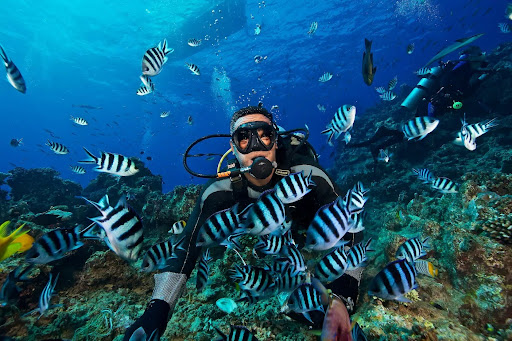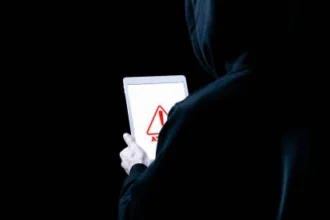For thrill-seekers and ocean lovers, the Beqa Lagoon Shark Dive offers one of the most unforgettable underwater experiences in the world. Located just off the southern coast of Viti Levu in Fiji, Beqa Lagoon is home to a legendary dive that brings you face-to-face with some of the ocean’s most awe-inspiring apex predators. This controlled and professionally guided dive promises heart-pounding excitement, unmatched marine biodiversity, and the opportunity to observe sharks in their natural environment.
- Why Beqa Lagoon is World-Famous for Shark Diving
- What to Expect on the Beqa Lagoon Shark Dive
- Pre-Dive Briefing and Preparation
- The Descent and Viewing Arena
- The Shark Encounter
- Up-Close Without Cages
- Conservation and the Shark Reef Marine Reserve
- Who Can Join the Dive?
- Dive Season and Best Time to Visit
- What to Bring for the Dive
- Getting to Beqa Lagoon
- More Than Just a Dive: Explore Fiji
- Final Thoughts
This article explores what makes the Beqa Lagoon Shark Dive so iconic, what to expect on your dive, safety practices, marine conservation efforts, and tips for planning your ultimate shark diving adventure.
Why Beqa Lagoon is World-Famous for Shark Diving
An Unrivaled Shark Encounter
What sets Beqa Lagoon apart is the sheer variety and number of sharks you can encounter in one dive. On a single trip, divers may spot up to eight species of sharks, including:
- Bull sharks
- Tiger sharks
- Whitetip reef sharks
- Blacktip reef sharks
- Grey reef sharks
- Silvertip sharks
- Lemon sharks
- Nurse sharks
Nowhere else in the world offers such a high concentration of shark species in a single dive site.
Clear, Warm Waters Year-Round
With water temperatures averaging 25–29°C (77–84°F) and visibility often exceeding 25 meters (80 feet), Beqa Lagoon offers ideal diving conditions for both novice and experienced divers.
Professional Dive Operations
Dive operators affiliated with the Beqa Lagoon shark experience are certified and follow strict safety and conservation protocols. Each dive is led by experienced guides who ensure the safety of both divers and marine life.
What to Expect on the Beqa Lagoon Shark Dive
Pre-Dive Briefing and Preparation
Your adventure begins with a thorough safety briefing, equipment check, and overview of the dive plan. You’ll be guided through protocols for behavior around sharks, emergency procedures, and communication signals.
The Descent and Viewing Arena
Divers descend to around 25 meters (80 feet), where a coral amphitheater has been naturally formed. This area serves as the main viewing platform for the shark encounters. Dive masters position divers safely behind a rock wall, providing protection while maximizing visibility.
The Shark Encounter
Once settled, dive guides begin feeding to attract sharks. The action intensifies quickly, with multiple shark species circling, darting, and swimming gracefully around the feeding area. The spectacle is awe-inspiring and surprisingly calm due to the professionalism and control maintained by the dive team.
Up-Close Without Cages
What truly sets this dive apart is that it’s done cage-free. While this may sound intimidating, divers consistently report feeling safe due to the guides’ expertise and the structured nature of the dive.
Conservation and the Shark Reef Marine Reserve
The Beqa Lagoon Shark Dive is more than just an adventure—it’s also a conservation success story.
Shark Reef Marine Reserve
Established in partnership with local villages, the Shark Reef Marine Reserve was created to protect the area’s marine life. In exchange for exclusive dive rights, dive operators provide financial compensation to local communities, encouraging sustainable practices and reef preservation.
Data Collection and Research
Each dive also serves as an opportunity for ongoing research. Data on shark behavior, species counts, and environmental conditions are regularly collected and used to inform global conservation strategies.
Education and Awareness
The dive promotes awareness about the importance of sharks in marine ecosystems and debunks common myths that portray them as mindless predators.
Who Can Join the Dive?
- Experience Level: Advanced Open Water certification is typically required due to depth and conditions.
- Age: Most dive operators require participants to be at least 15 years old.
- Fitness: Good health and comfort in open water are essential.
If you’re not certified yet, many resorts offer PADI Open Water and Advanced certification courses.
Dive Season and Best Time to Visit
- Best Months: May to October for optimal visibility and weather.
- Shark Activity: Year-round, though numbers and species may vary slightly with seasons.
- Off-Peak Benefits: Fewer divers and more personalized attention during the wet season (November–April).
What to Bring for the Dive
- Dive certification card
- Mask, fins, and wetsuit (usually 3mm)
- Underwater camera for incredible photos
- Dive computer (often required)
- Reef-safe sunscreen
Getting to Beqa Lagoon
Most divers arrive in Fiji via Nadi International Airport. From there, you can transfer to Pacific Harbour by car or shuttle (approx. 2.5 — 3 hours). Dive operators will then transport you by boat to Beqa Lagoon.
More Than Just a Dive: Explore Fiji
When you’re not diving, enjoy the other wonders Fiji has to offer:
- Traditional kava ceremonies and cultural performances
- Waterfall hikes and rainforest adventures
- Relaxing beaches and luxurious spa treatments
For the complete island experience, book a stay at one of the dedicated dive resorts in the region. Beqa Lagoon Shark Dive packages often include accommodation, meals, gear rentals, and multiple dive options.
Final Thoughts
The Beqa Lagoon Shark Dive is not just a bucket-list dive—it’s a once-in-a-lifetime experience that perfectly blends adrenaline, beauty, and purpose. As you hover amidst swirling sharks in crystal-clear water, you’ll gain a new appreciation for these majestic creatures and the fragile ecosystem they support.
Whether you’re a seasoned diver or someone seeking your next great adventure, the Beqa Lagoon Shark Dive promises memories you’ll never forget. So take the plunge—your ultimate Fiji diving experience awaits!

















